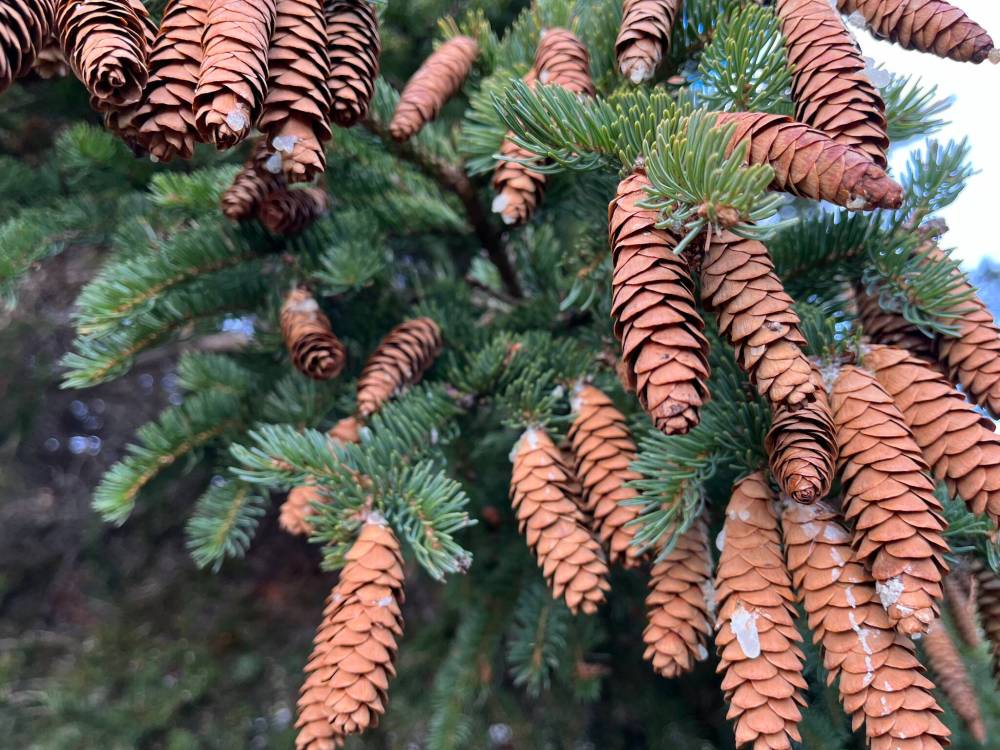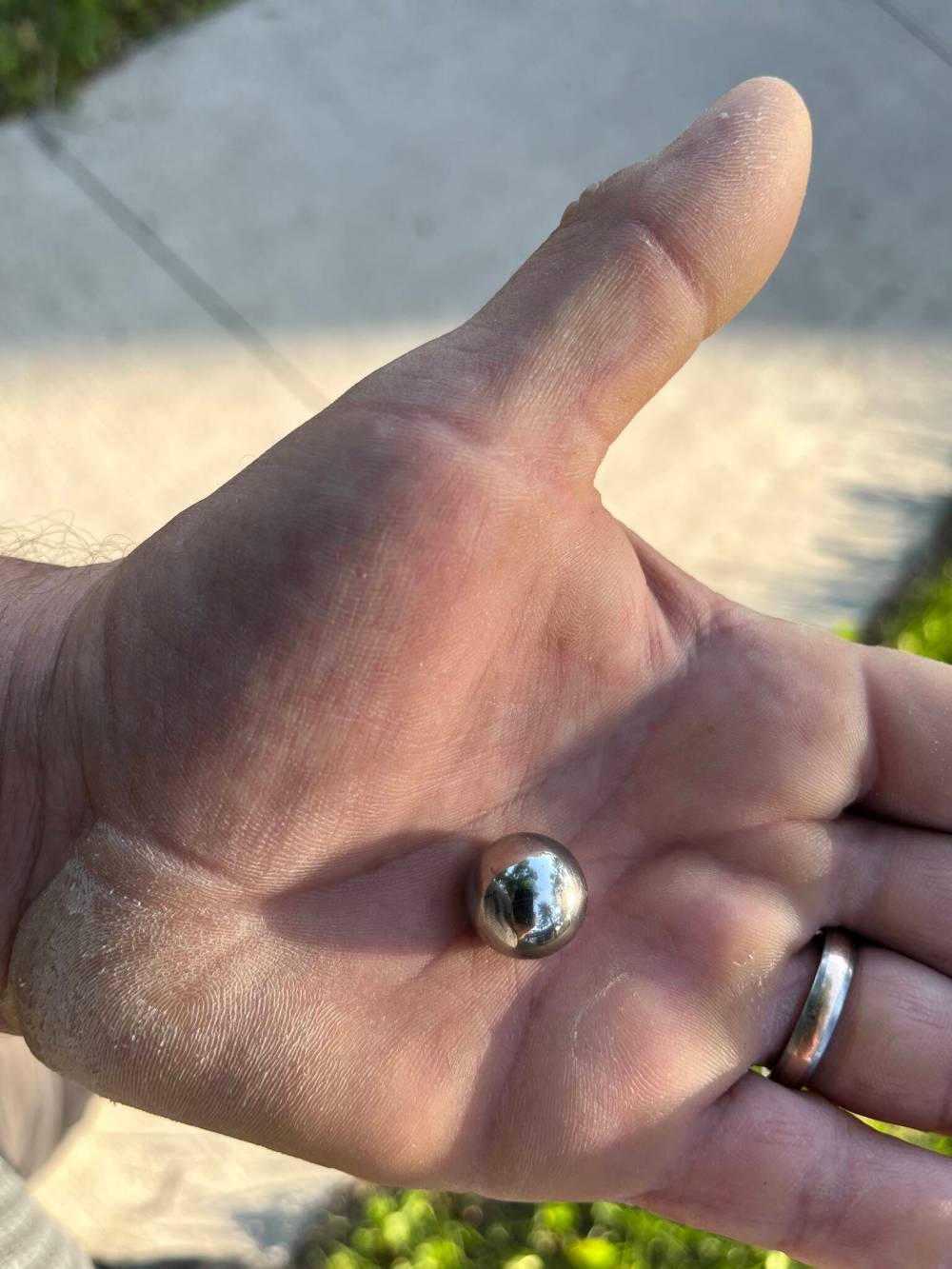Finding refuge in beauty of minuscule complexity
Advertisement
Read this article for free:
or
Already have an account? Log in here »
To continue reading, please subscribe:
Monthly Digital Subscription
$1 per week for 24 weeks*
- Enjoy unlimited reading on winnipegfreepress.com
- Read the E-Edition, our digital replica newspaper
- Access News Break, our award-winning app
- Play interactive puzzles
*Billed as $4.00 plus GST every four weeks. After 24 weeks, price increases to the regular rate of $19.00 plus GST every four weeks. Offer available to new and qualified returning subscribers only. Cancel any time.
Monthly Digital Subscription
$4.75/week*
- Enjoy unlimited reading on winnipegfreepress.com
- Read the E-Edition, our digital replica newspaper
- Access News Break, our award-winning app
- Play interactive puzzles
*Billed as $19 plus GST every four weeks. Cancel any time.
To continue reading, please subscribe:
Add Free Press access to your Brandon Sun subscription for only an additional
$1 for the first 4 weeks*
*Your next subscription payment will increase by $1.00 and you will be charged $16.99 plus GST for four weeks. After four weeks, your payment will increase to $23.99 plus GST every four weeks.
Read unlimited articles for free today:
or
Already have an account? Log in here »
Hey there, time traveller!
This article was published 05/10/2024 (372 days ago), so information in it may no longer be current.
It’s a hard time to be positive.
Perhaps some of it is the waning of the light, the way that, for early risers like me, the walk to the morning bus is now in darkness, down dark-tunnel tree-overhung streets where only occasional house windows are lit.
It’s fine to like the swing into fall, the sound of leaves underfoot in the morning dark and the smell of fugitive fireplace woodsmoke in the evenings, but it’s also the time of the insiding — transitioning from the yard or porch to the tighter confines of living room.

RUSSELL WANGERSKY / FREE PRESS
A choir of spruce cones.
There’s still plenty to do outside — is there anything better than a fall walk on a river trail? But the easy travel in and out of the house now involves a jacket, and soon, the thoughtful consideration of gloves.
Whatever the reason, I’ve found everything exhausting for the last few months: work, pushing through the paperwork of life, endlessly battling with the circular travels of computer-based customer-relations systems. I just have no reserves. No resiliency.
I try very hard to focus on something very small: the edge of an extremely sharp kitchen knife, pulled laterally across the whorls and ridges of my thumb. The bright chrome perfection of a ball bearing. The order of a choir of spruce cones.
The constant variety of seaweed, washed up in a tideline along a stone beach, like a tactile textbook of the unending variety that lies beneath the ocean’s surface.
It’s worked in the past. I don’t know why, but there is something about those sorts of small wonders that is uplifting, even if I can’t explain why.
Perhaps it is a result of recognizing — and valuing — something small, something both remarkably complex and done extremely well, whether it’s a human creation, a machine’s steadfast rote precision or the astounding order-and-design-to-purpose of nature itself.
To look, to pick a thing up and turn it so I can study it from all angles — it is a mind-cleanse for me if there ever was one, the ability to set aside everything else. The sheer harmony of cross-cut wood grain.
Even something as ridiculously simple as the repeated patterns in dried pasta poured from the bag, from the rigid industrially-identical butterflies of farfalle on down. (There are larger farfalle called farfellone, and smaller ones named farfalline. The mind boggles — and I almost slip away. But no.)
It is a coping method, a much-needed walkaway from the harder edges of the world, and something for decades I’ve been able to slip into almost accidentally. I liken it to a line in the song A Long December by Counting Crows: “To see the way that light attaches to a girl,” except in my head, it’s all about seeing the way that light attaches to the world.
But the older I get, the harder it gets.
And suddenly, it has gotten very difficult indeed.
Over the past few months, I’ve taken dramatically fewer photographs than I once did. There just don’t seem to be things worth recording. I’ve been overtaken by fewer things, and it feels like I’m losing a skill I’ve always had, because I’ve developed a nagging fear that none of it really matters.

RUSSELL WANGERSKY / FREE PRESS
The perfection of a ball bearing.
I’m enjoying things less, and wondering if this is what depression feels like. Not really sure how to ask about it: like many men, I’ve built a house with few close friends to talk to, and two inter-provincial moves in three years hasn’t helped on that front, either.
Part of it is just a sort of existential dread: I worry now for my children and grandchildren, more than I ever have before. I’m not sure if they’ll have the opportunity to marvel at the things I have marvelled at, or whether the world they inherit will not have time for such extemporaneous things.
Marvelling at small perfections also involves understanding how fragile they are, and how simply they can fail. I’ve stood on huge grey windswept limestone barrens in Newfoundland, looking down at small, extremely tough little endangered flowering mustard plants,that can only grow with the right alkaline soil, groundwater and temperature, and realized they could wink out in one bad year or one bad off-roading ATV experience. Danger is close.
And part of what’s creating that danger is this place, this country. Or, at least, us, the people in it. Like our neighbours to the south (but perhaps not at such a quick a rate), we seem intent on taking things apart. Given tremendous gifts by happening to be making our lives here, instead of in much worse places, we seem intent on the glass being half-empty.
Or broken.
I don’t think, as some suggest, that Canada is broken. But I do think we’re at a point where there is clear political and financial gain to be made by breaking it — and part of breaking it is first breaking our faith.
Take small pieces, hold them close. And try to wonder.
I try. Though I fear the reservoir that holds that magic is running out.
Russell Wangersky is the Comment Editor at the Free Press. He can be reached at russell.wangersky@freepress.mb.ca

Russell Wangersky
Perspectives editor
Russell Wangersky is Perspectives Editor for the Winnipeg Free Press, and also writes editorials and columns. He worked at newspapers in Newfoundland and Labrador, Ontario and Saskatchewan before joining the Free Press in 2023. A seven-time National Newspaper Award finalist for opinion writing, he’s also penned eight books. Read more about Russell.
Russell oversees the team that publishes editorials, opinions and analysis — part of the Free Press‘s tradition, since 1872, of producing reliable independent journalism. Read more about Free Press’s history and mandate, and learn how our newsroom operates.
Our newsroom depends on a growing audience of readers to power our journalism. If you are not a paid reader, please consider becoming a subscriber.
Our newsroom depends on its audience of readers to power our journalism. Thank you for your support.

